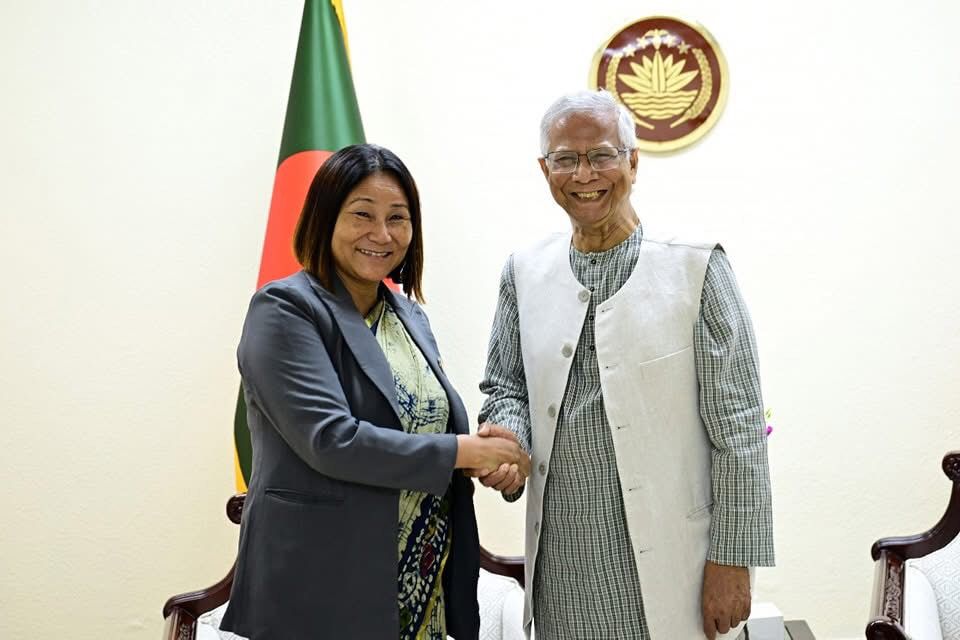Chief Adviser Muhammad Yunus on Monday underscored the need for an integrated economic strategy involving Bangladesh, Nepal, Bhutan, and the seven northeastern states of India, to harness the collective potential of the region in sectors such as hydropower, healthcare, and physical connectivity.
“We have more to gain together than apart,” said the Chief Adviser when Deputy Speaker of the House of Representatives of the Federal Parliament of Nepal Indira Ranamagar, currently visiting Dhaka, called on him.
Stressing the urgency of regional cooperation through shared infrastructure and energy ventures, the chief adviser said, “There should be an integrated economic plan for Bangladesh, Nepal, Bhutan, and the Seven Sisters,” referring to India’s northeastern states.
The two sides discussed avenues for expanding collaboration in the hydropower sector. Citing the Bangladesh-Nepal-India tripartite power sales agreement signed last October — under which Bangladesh will import 40MW of electricity from Nepal using Indian transmission lines — both leaders emphasised the need to initiate more such projects at a greater scale.
Muhammad Yunus also reiterated Bangladesh’s commitment to regional healthcare access. “Our upcoming 1,000-bed hospital in Rangpur will be open to patients from Nepal and Bhutan as well. We believe in regional health security and shared prosperity,” he stated.
Deputy Speaker Ranamagar expressed Nepal’s keen interest in deepening ties with Bangladesh across multiple fronts. “All our parliamentarians want to work closely with Bangladesh. We’re serious about strengthening our economic partnership and boosting people-to-people connections,” she said.
She also highlighted the growing presence of Nepali students in Bangladesh, noting that over 2,700 are currently enrolled in Bangladeshi institutions, primarily in medical colleges. Praising the quality of education in the country, she called for enhanced academic exchanges and cooperation.
Discussions also covered the importance of improving regional connectivity. Prof Yunus noted that establishing direct road links with Nepal would significantly reduce trade costs and facilitate smoother movement of goods and people.
The meeting was attended by Nepalese Ambassador to Bangladesh Ghanshyam Bhandari, Bangladesh’s SDG Affairs Principal Coordinator Lamiya Morshed, and Director General at the Ministry of Foreign Affairs Ishrat Jahan.


